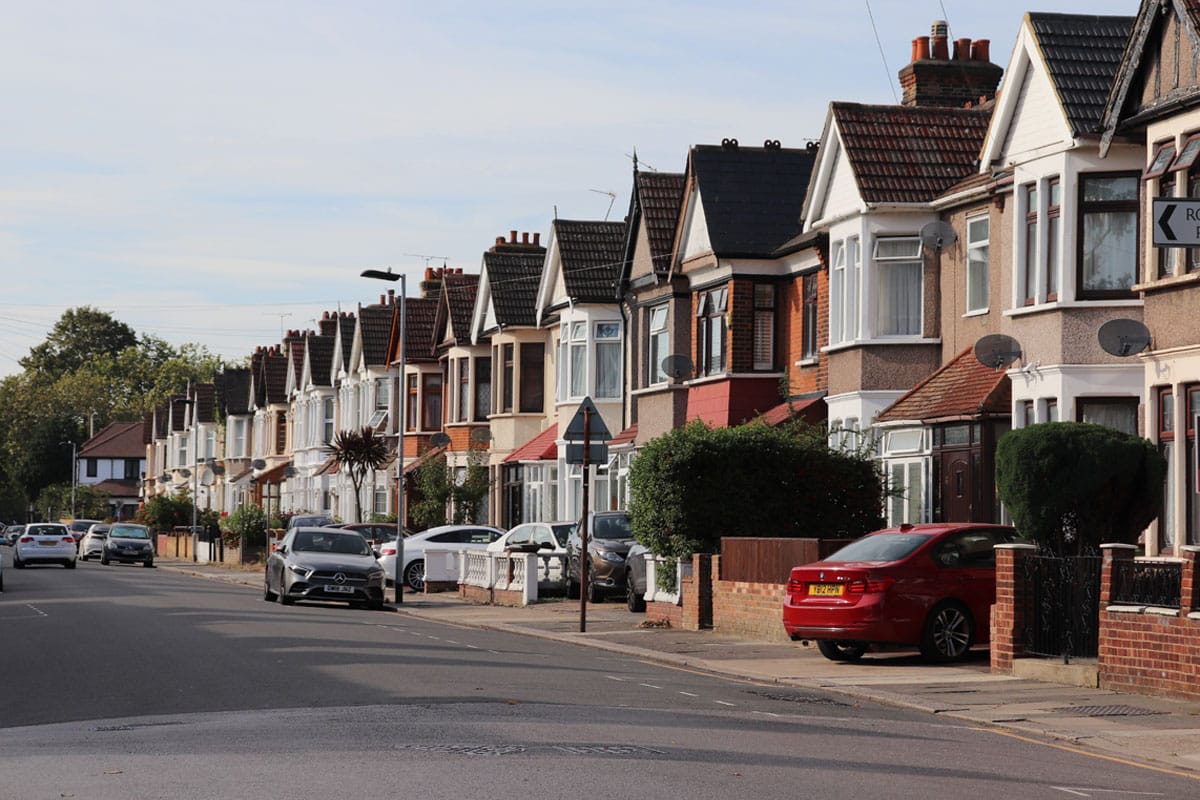How To Negotiate A House Price: Expert Strategies To Save Thousands
Mastering the art of house price negotiation is crucial for both property investors and homebuyers. Whether you're building a property portfolio or buying your first home, knowing how to negotiate effectively can save you thousands of pounds. In this comprehensive guide, we'll explore proven techniques to help you negotiate the best possible price for your next property purchase.
Contents

-
by Robert Jones, Founder of Property Investments UK
With two decades in UK property, Rob has been investing in buy-to-let since 2005, and uses property data to develop tools for property market analysis.

Understanding the Property Market
Before entering negotiations, it's essential to understand how the property market works:
- Estate Agent Valuations: When valuing properties, estate agents typically consider two main factors: local housing market comparisons and the seller's expectations. While they often use sold house price data as a reference, the final marketing price isn't always an exact reflection of these historical values. Sellers or agents might choose to list the property at a higher price than recent comparisons suggest, hoping to achieve a better sale price in the current market.
- Market Conditions: In a buoyant market, properties might be slightly undervalued due to rapid changes. In a slow market, slightly overpriced properties can stall for months.
Preparation the Key to Successful Negotiation
Thorough preparation is crucial for effective negotiation:
- Set clear goals and limits for your offer
- Gather essential information about the property and seller
- Understand the seller's motivation for selling
Key Questions to Ask Before Making an Offer
Q). Why is the vendor selling?
Q). How long has the property been on the market?
Q). Have there been any other offers?
These questions can provide valuable insights into the seller's position and how flexible they might be on price. It could also indicate if there has been a problem with the property previously, for example if they had an earlier offer than fell through after a survey.
Crafting Your Offer Strategy
The three-offer strategy
- Initial Offer: Start lower than your maximum price, but not so low as to offend the seller. You can easily put the estate agent and seller off, by being unrealistic, it’s important to have built a relationship with them earlier and maintain this through the offer process.
- Second Offer: Show willingness to compromise by increasing your offer. Be specific using considered numbers and give reasons and justifications why your offer makes sense and is based on the comparable evidence you can find for similar properties sold and on the market.
- Final Offer: Make your best and final offer, emphasising it's your limit and you will need to consider other properties if it is rejected. The fear of missing out is as strong for sellers as it is for buyers.
Avoiding round numbers
Instead of offering £200,000, consider £198,500. This suggests you've calculated a specific maximum based on careful consideration.
Demonstrating your research
When making an offer, always explain your reasoning. For example:
I'm offering £198,500 because similar properties in the area have sold for £195,000 to £205,000 in the last six months, and this property needs about £5,000 of work to bring it up to the same standard.
Negotiating With Estate Agents
Remember that estate agents work for the seller. Here are some tips for dealing with them:
- Build rapport, but remember they're not on your side and they should be aiming to get the highest price for the seller.
- Use the information they provide to your advantage when giving reasons behind your offer price.
- Don't reveal your maximum budget. Keep this close to your chest.
Negotiating With Sellers
If you are buying a property off-market, buying directly from the seller can sometimes lead to better deals. Here's how to approach it:
- Find Direct-to-Vendor Opportunities: Look for "For Sale by Owner" listings or use targeted marketing to find sellers.
- Qualify the Lead: Ensure the seller is genuinely motivated to sell.
- Pre-Viewing Checklist: Prepare all necessary information and questions before viewing the property.
- Viewing Techniques:
- Build rapport with the seller. It is much easier to get to a common ground outcome on the purchase price if both the buyer and seller get along
- Complete a quick property condition report. Understanding at a basic level if there are obvious issues with the property that need addressing will help with your offer.
- Fact-find about the seller's situation. Are they selling because of an issue with the neighbours? a new development that has gained planning permission? or some other reason. The seller might not be open about the reason when you ask, but gaining as much information earlier in the process can really help.

Specific Negotiation Scenarios
Negotiating after a survey
If a survey reveals issues, you can use this to genuinely renegotiate:
- Get quotes for necessary refurbishment work
- Present these to the seller or estate agent
- Propose a price reduction based on the required repairs
Negotiating on new build properties
New builds can be trickier to negotiate on, but it's not impossible:
- Research the developer's other projects and their pricing.
- Look for incentives like stamp duty payments or upgrades instead of price reductions.
- Be prepared to walk away - developers often have more flexibility than they initially let on and you may get a developer coming back in the future with a counter offer.
Handling best and final offers
If asked for your "best and final offer":
- Ensure you're comfortable with potentially losing the property at this price
- Make your offer specific (e.g., £287,500 rather than £290,000)
- Explain the reasoning behind your offer

Advanced Negotiation Strategies
Creating win-win situations
Look for ways to meet the seller's needs while achieving your goals. For example, if they need a quick sale, offer a faster completion in exchange for a lower price. If you are in a position to purchase with cash fully instead of a mortgage, this can be a big benefit as it can really speed up the process.
Handling counteroffers
When dealing with counteroffers, it's important to stay level-headed. Don't let emotions guide your decisions. Instead, calmly restate why you made your original offer. Explain your reasons again, using facts about the property and local market to back up your position. Remember that you don't have to accept a counteroffer that's too high. If the seller won't agree to a price within your budget, be ready to look for other properties. It's better to walk away than to pay more than you can afford or more than the property is worth.
Renegotiating after a down valuation
If your RICS mortgage valuation comes in lower than expected:
- Share the valuation report with the seller
- Explain that your mortgage offer will be reduced
- Ask the seller to reduce the price to match the valuation
Case Study: How to Negotiate 10% of the House Asking Price
Let's look at a practical example:
- Property: 3-bed semi-detached house
- Asking Price: £250,000
- Research: Similar properties sold for £215,000-£240,000 in the last 6 months
- Initial Offer: £215,000 (explaining market comparisons)
- Counteroffer: Seller comes back at £245,000
- Second Offer: £221,000 (showing willingness to compromise)
- Counteroffer: Seller comes back at £235,000
- Final Negotiation: £225,000 (showing willingness to increase but this is your maximum based on x,y,z that sold recently)
Result: this won’t always work as not every seller can reduce their selling price or expectations. But it is a logical approach to an increasing offer process from start to end and if successful can yield 10% discount on the original marketing price. We have purchased many properties using this simple and genuine approach to house price negotiation.
Conclusion
Negotiating a house price successfully requires thorough research of property portals and house price values, careful preparation, and a strategic approach. By understanding the market, asking the right questions, and applying these negotiation techniques, you can potentially save thousands on your property purchase. Remember, every situation is unique, so be prepared to adapt these strategies to your specific circumstances as well as the property and seller.
With practice and patience, you can master the art of property price negotiation and secure the best possible deal on your next home or investment property.
